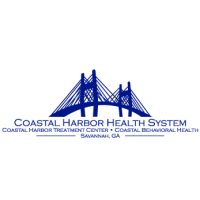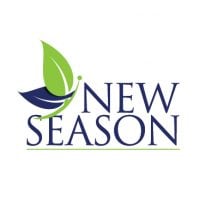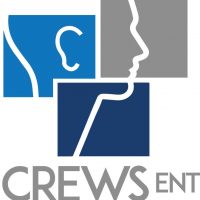Access Case Management
Drug Rehab Center in Savannah, Georgia
- Opioid Addiction
- Dual Diagnosis
- Drug Addiction
- Alcoholism
Access Case Management is an addiction treatment provider in Savannah, Georgia that offers personalized care plans integrating behavioral health and medical care, with a variety of substance abuse treatment services, counseling, group therapy, and aftercare programs.
About This Georgia Facility
Access Case Management is an addiction treatment provider in Savannah, Georgia that caters to individuals facing substance use disorder and behavior health issues. Founded in 2018, they provide personalized care plans that integrate behavioral health and medical care, with an emphasis on helping individuals lead a healthier lifestyle. They offer various services and activities geared toward prevention and intervention of addiction.
Access Case Management offers a variety of substance abuse treatment services, such as detoxification, counseling, group therapy, and aftercare programs. Through individualized and group counseling, clients are provided with education about ways to manage cravings, detect triggers, and cope with possible relapse. Group therapy enables clients to gain insight into their own difficulties and develop skills to form positive relationships with others. Access Case Management also provides medication-assisted treatment options to individuals struggling with opioid and alcohol addiction.
Access Case Management is accredited by the Commission on Accreditation of Rehabilitation Facilities (CARF) and is licensed by the Georgia Department of Behavioral Health and Developmental Disabilities (DBHDD). In addition, they offer specialized programs such as Acceptance and Commitment Therapy (ACT) and Cognitive Behavioral Therapy (CBT). Access Case Management is dedicated to helping individuals affected by Substance Use Disorder (SUD) and provides a wide array of resources to help them on the path to recovery.
Genders
Ages
Modality
Additional
Conditions and Issues Treated
Opioid addiction treatment should be done in a medically supervised drug rehab. Opioid addiction treatment will include detoxification and drug rehab counseling to help both the user and their loved ones learn how to live a successful sober lifestyle. Methadone, buprenorphine, and naltrexone are three medications that can help treat opioid addiction. Individual drug rehab counseling sessions can be helpful to discuss any questions or concerns with the drug treatment program.
Levels of Care Offered at Access Case Management
This center offers a variety of custom treatment tailored to individual recovery. Currently available are Aftercare Support, Drug Rehab, Outpatient, with additional therapies available as listed below.
Individuals struggling with drug addictions can get help from several treatment options, including inpatient and outpatient programs. Outpatient drug treatment programs can also provide patients with different levels of care, usually depending on the patient’s degree of addiction.
At an outpatient program in Savannah, a patient will attend a recovery program during the day and return home in the evening. Suppose a patient is struggling with drug addiction. In that case, an outpatient program can serve as an effective transition point during the recovery process.
Aftercare is a part of drug rehabilitation. It is also known as “post-treatment support.” Aftercare programs are available for addicts after they complete drug rehab. It is often the final step in the recovery process. The goal of aftercare is to ensure that addicts maintain their achievements in rehab and do not relapse. Professionals generally provide aftercare (including addiction therapists, physicians, social workers, psychologists) and involve individual and group therapy sessions.
Therapies & Programs
Individual therapy is a critical component of addiction recovery. It allows the patients to go deep into their core issues and discover how to handle those problems better. Therapy can be conducted in individual sessions as well as group settings. In individual therapy for addiction, the patient meets with their therapist one-on-one to focus on the underlying issues. This allows patients to open up and discuss personal topics they may not feel comfortable discussing in a group setting. This type of therapy can help develop solutions specific to each patient, which helps speed up the recovery process.
Couples therapy is beneficial for couples in which at least one partner has a substance use disorder. This type of therapy can help partners improve communication skills, which is an important factor in a healthy relationship. It can also help partners better understand one another so they have a greater understanding of how the other partner may be feeling.
Benefits of couples therapy include:
- Improvement in communication skills
- Increased understanding of the dynamics within a relationship
- Increased sense of support and trust in the relationship
- Better teamwork between partners/increased willingness to listen and work together
- Enhanced tolerance of each other’s shortcomings
- Improved ability to have open, honest communication with each other
Family therapy is a crucial part of drug treatment and getting sober. It is one of the most effective ways to help addicts stay on the path to long-term sobriety. When a drug addict decides that they want to try and get sober, it takes the support of every person they love to succeed. It can be incredibly difficult for loved ones to watch an addict go through the pain and suffering of withdrawal, but by being there with them and supporting them, they can help to make sure that the addiction never returns.
One of the most important parts of family therapy is the relapse prevention plan. During treatment, therapists and doctors will often sit down with the addict and their family to develop a plan in case the addict ever feels like they want to use again. This plan should involve steps the addict and family can take together to prevent them from relapsing in the future. An addict’s family can play a vital part in helping them to avoid relapse because they can spot the warning signs and help them get back on track before it becomes too much of a problem.
Group therapy helps prevent addicts from feeling isolated or unique in their situation by offering a sense of comfort and fellowship. It also creates a forum for addicts to build their support systems and learn from each other. The group therapy sessions at Access Case Management occur in a group setting rather than one-on-one to create a safer, controlled environment where addicts feel comfortable.
Payment Options Accepted
For specific insurance or payment methods please contact us.
Additional Details
Specifics, location, and helpful extra information.
Savannah, Georgia 31406 Phone Number(912) 355-4242 Meta DetailsUpdated November 25, 2023
Staff Verified
Patient Reviews
There are no reviews yet. Be the first one to write one.
Savannah, Georgia Addiction Information
Prescription opioid use has caused a large increase in the total amount of overdoses in Georgia. Almost 12% of the Georgia population uses illicit drugs each year, and slightly over 3.5% also abuses alcohol at the same time. This does not include those who binge-drink at least once a month, which includes 20% of all Georgians.
9% of Savannah, Georgia, residents reported using an illicit drug and 17% reported binge drinking. Over 1,600 people died due to drug overdoses in Georgia from 2010 to 2015. The most common types of drugs were methamphetamine and cocaine. Many treatment types are available in Savannah, including inpatient treatment which is likely the best option for some people, while outpatient treatment may be better for others. Faith-based rehabs offer 12-step programs.
Treatment in Nearby Cities
- Swainsboro, GA (82.9 mi.)
- Blue Ridge, GA (271.5 mi.)
- Union Point, GA (159.9 mi.)
- Baconton, GA (185.1 mi.)
- Thomasville, GA (188.0 mi.)
Centers near Access Case Management




The facility name, logo and brand are the property and registered trademarks of Access Case Management, and are being used for identification and informational purposes only. Use of these names, logos and brands shall not imply endorsement. RehabNow.org is not affiliated with or sponsored by Access Case Management.



